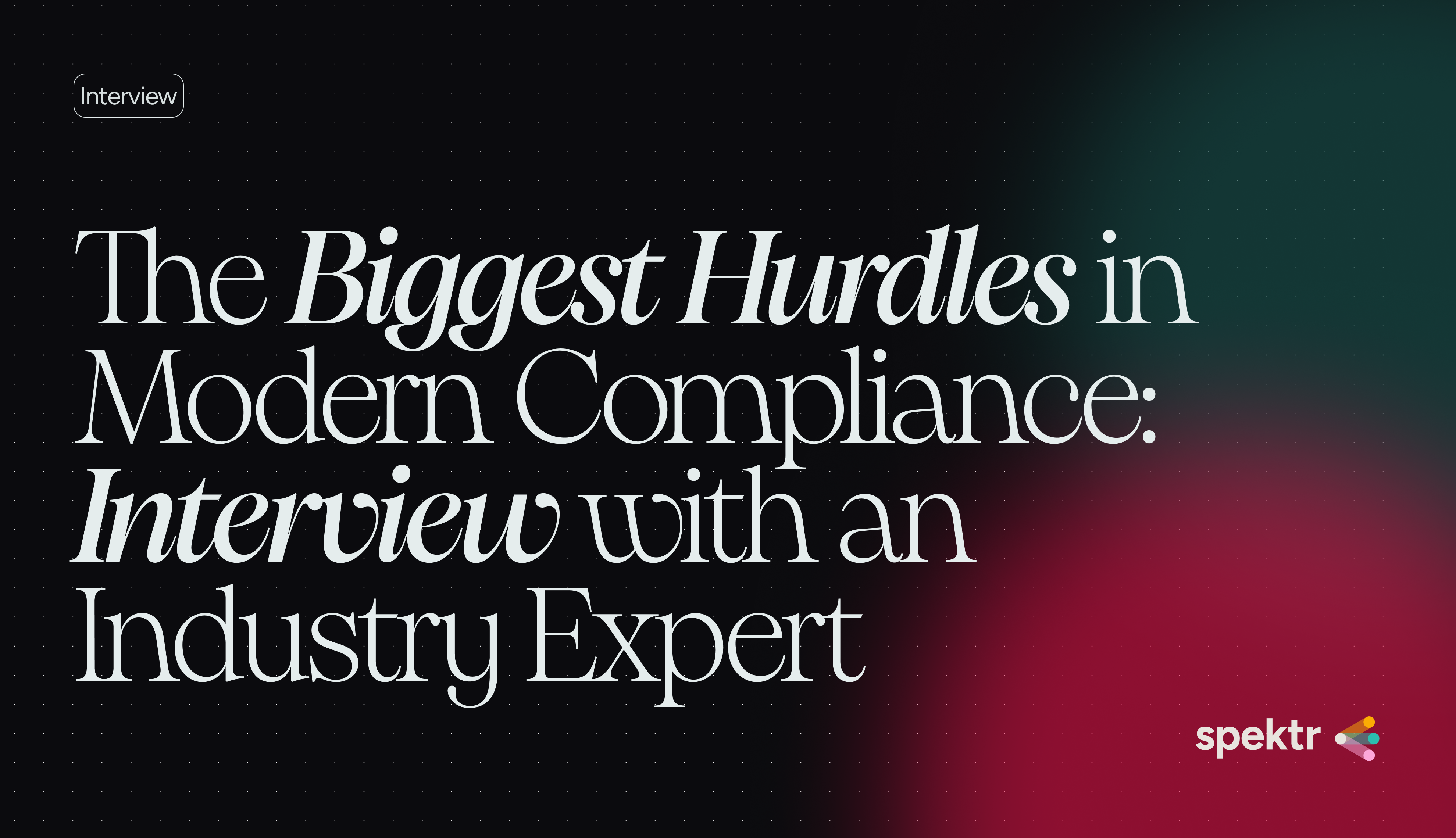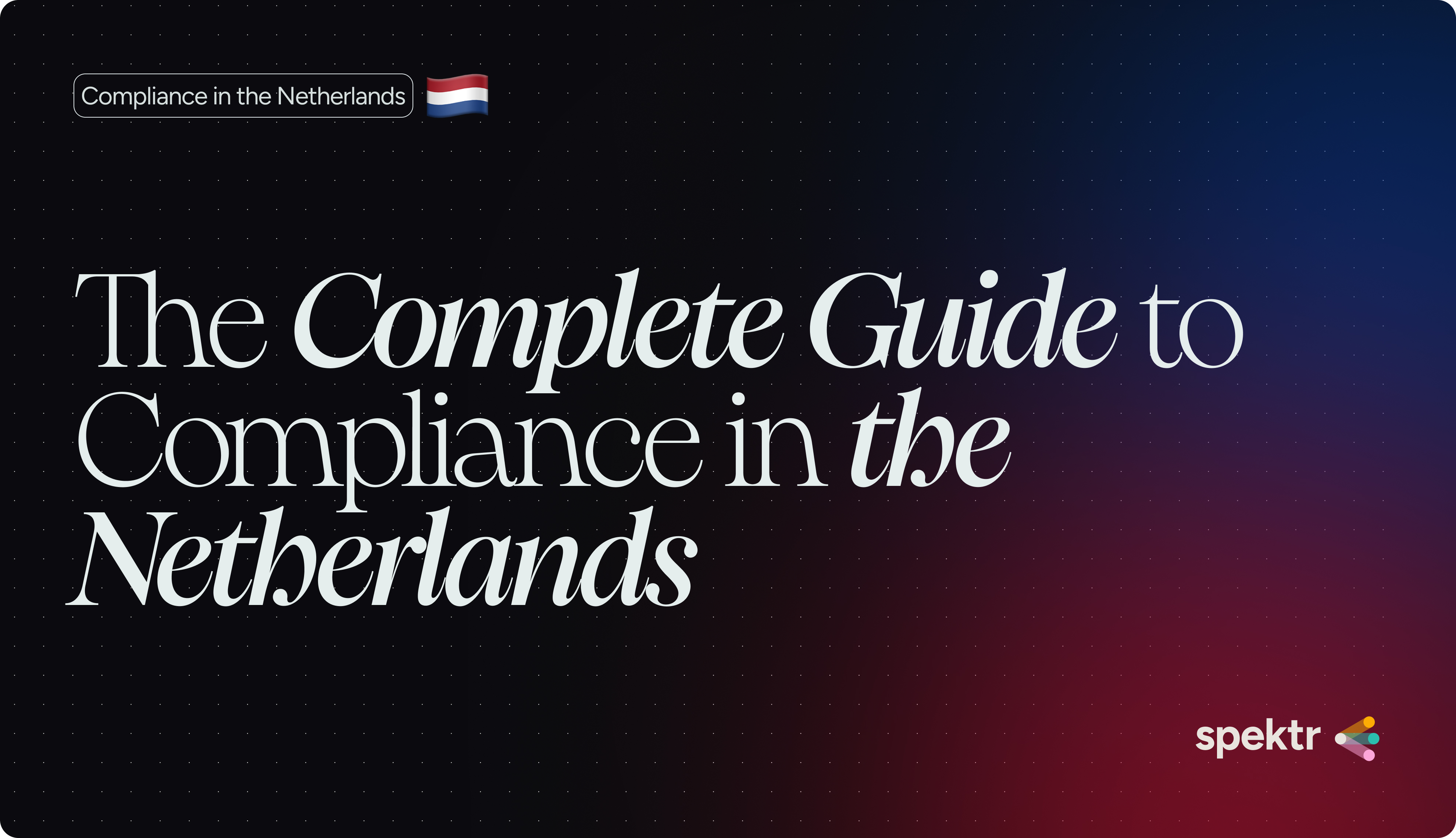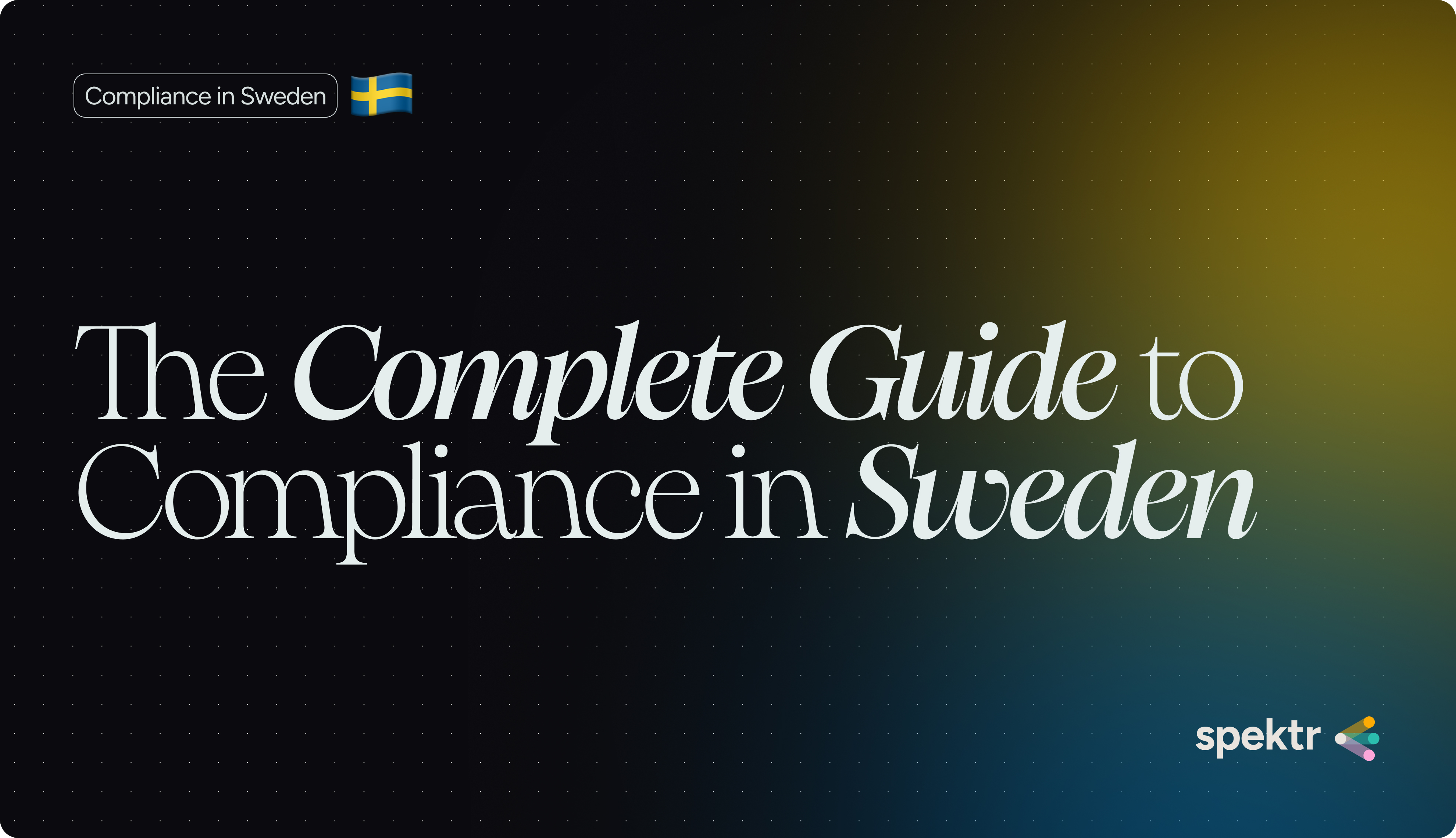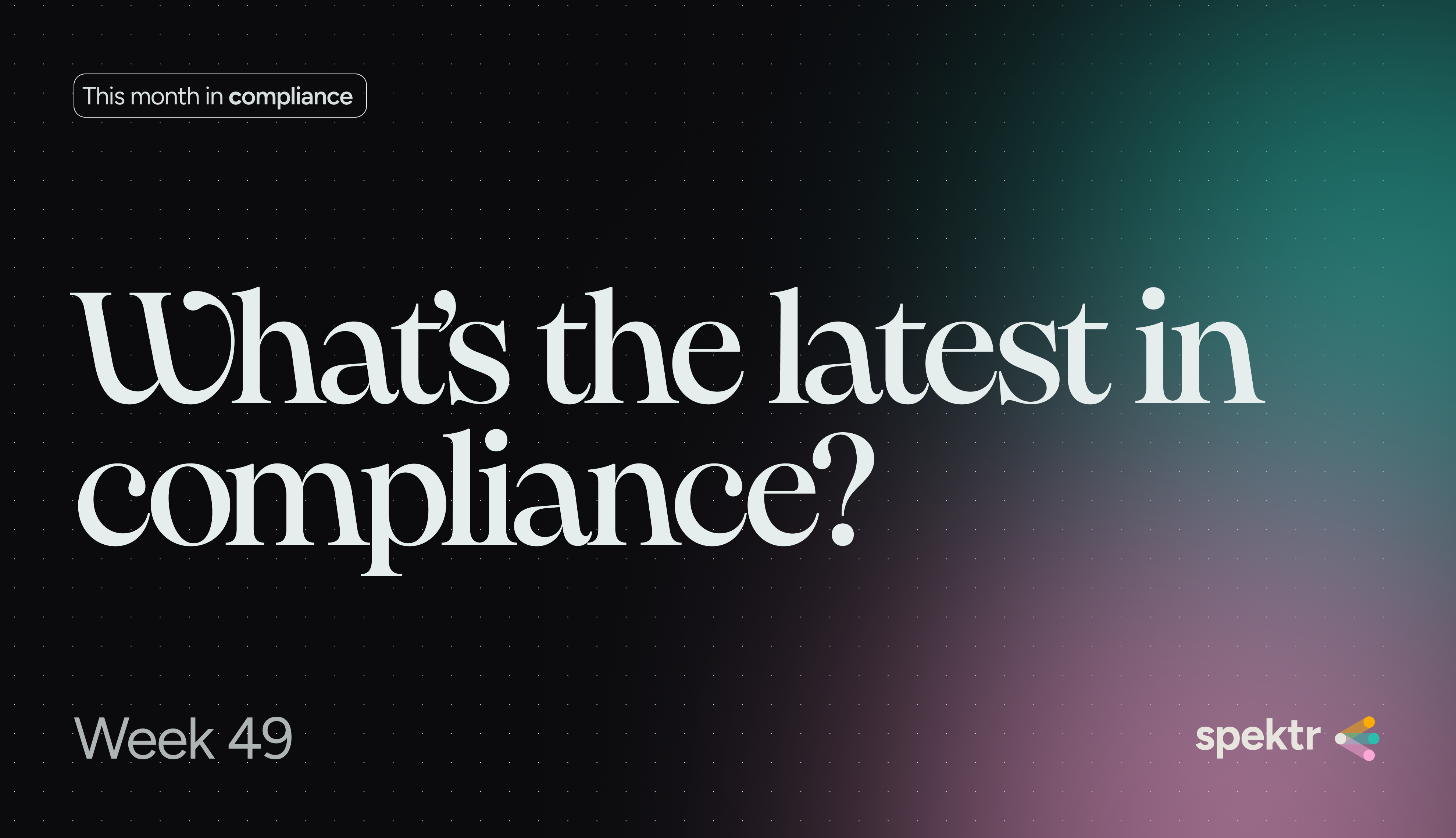The Biggest Hurdles In Modern Compliance: Interview With An Industry Expert
Try the platform

Share the article
What are the biggest and most persistent challenges that compliance professionals in the fintech market are facing today? We got the opportunity to interview someone who knows the industry inside and out: Lauren Eager. Lauren is a Senior Recruitment Consultant, exclusively working with risk and compliance, at QED Legal. Her years of experience have amounted to an intricate understanding of the relationship between financial institutions and compliance – which is why we teamed up with her to talk about compliance, fintech, and solutions such as spektr.

Setting the Scene
Lauren has firsthand witnessed the struggles, trends, and opportunities that define the industry. In such a fast-paced and highly regulated environment, compliance professionals are under immense pressure to meet a host of regulatory requirements, maintain data security, all whilst attempting to be as cost-effective as possible.
How have the demands on compliance professionals changed in the last few years?
The last few years have seen such a gigantic increase in compliance regulations, from the 2018 Data Protection Act to the EU Anti Money Laundering Authority (AMLA) being enforced last year. Compliance leaders and professionals are having to continuously adapt to a vast, varied and intricate global regulatory environment.
This means compliance roles have expanded beyond the traditional regulatory alignment; professionals must now be experts in data privacy, money laundering, whistle-blowing, fraud, cyber security and more. Compliance functions can no longer be one person, they must be a team of experts who know their niche inside out.
On top of this, pressures aren't merely best practice anymore, but preventing extremely high fines and reputational risk, having to pre-emptively address compliance issues before they even arise.
How do you specifically think that expectations of compliance professionals in the fintech market have changed?
I think the countless global scandals across multiple FinTech's have really helped highlight just how important compliance is in the FinTech space. The Wirecard scandal going to court and the FTX collapse in 2022 - makes you see just how much compliance functions need to change.
All the regulatory changes and increased global scandals has really increased expectations of compliance professionals, having to evolve drastically, keeping up with FinTechs rapid growth and complexity of their offerings. They're expected to act as strategic partners, whilst fostering innovation and keeping regulatory risks in check.
Often operating in gray regulatory areas, they need compliance professionals who can implement agile compliance frameworks and scalable solutions to grow and keep pace with innovation. FinTechs need incredible investment, not only in finance, but knowledge and technologies to automate compliance functions.
Fintech’s Toughest Compliance Challenges
Who better to ask about challenges in the industry than someone who knows it like the back of her hand?
Are there any particular challenges that you have seen compliance professionals persistently struggling with?
I think the biggest element is balancing regulations and effective compliance with the pace of growth that a lot of fintechs face. They're constantly evolving, having to offer new innovative products to stay ahead of the competition, can really cause issues in compliance. Compliance teams often find themselves limited by a lack of resources and legacy systems, having to push senior leaders to understand why they need to be investing in compliance.
An overarching theme that covers all compliance challenges, is the need to really embed a culture of compliance across the business, ensuring that all teams, not just compliance, are aligned with the regulatory goals of the business. It's a never-ending task, and honestly the number 1 reason people leave their roles.
The Two Cs: Compliance and Configurability
When relying on any kind of tech to help with compliance-related activities, flexibility is paramount. Each compliance process has its own unique complexities, and solutions should be adaptable to these specific needs, rather than forcing organizations into rigid, one-size-fits-all frameworks. That’s why compliance depends on configurable solutions, and spektr goes so far as to offer hyper-configurability.
What do you realistically think can help alleviate some of these key challenges you mention?
I think the biggest thing that needs to be looked at is solutions that are adaptable and can grow with your business as you continue to evolve and scale. One of the biggest issues compliance functions face is old outdated tools, or tools that just don't suit their business or their team.
What do you think the future of compliance in fintech will look like?
With the rise of AI and smart technology that works around you and your needs, I think a seamless integration of technology automation and human expertise will be the key to the future of compliance. Automation will handle repetitive tasks and real-time monitoring, whilst specialised technology can provide deep insights and adaptable frameworks.
However, the technology needs to work fluidly with compliance teams; AI and new smart tech can't work on it's own without ethical flaws, the symbiosis between tech and humans will be essential.
We want to extend a huge thank you to Lauren for taking the time to give her valuable observations in this exclusive interview! Her insights have highlighted both the ongoing challenges, as well as the promising role of configurable compliance tech that is highly adaptable to distinct organizational requirements (such as spektr).
Curious how spektr can reshape your compliance processes? Start a trial today and see firsthand how hyper-configurability can save you time, reduce risk, and automate your compliance process.




